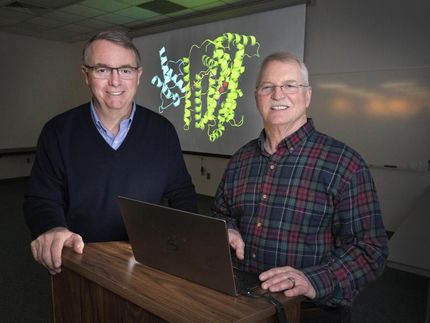Increasing substrate selectivity through encapsulation
Advertisement
Italian chemists have come up with a homogenous catalytic system that displays substrate selectivity by developing an encapsulated catalyst that mimics enzymes to selectively hydrate one alkyne over a mixture of others.
The scientists encapsulated an NHC-Au(I) catalyst within a supramolecular host that acts like an enzyme so that only specific substrates will fit into the residual cavity left by the catalyst. Supramolecular interactions between the substrate, host and catalyst provide an additional level of electronic restrictions. They investigated the effect of the new catalyst on substrate selectivity in the hydration of alkenes that differed only remotely with respect to the active triple bond and found that, although the reactions were sluggish, the catalyst was significantly selective due to increased catalyst-substrate surface interactions.
Most read news
Other news from the department science

Get the chemical industry in your inbox
By submitting this form you agree that LUMITOS AG will send you the newsletter(s) selected above by email. Your data will not be passed on to third parties. Your data will be stored and processed in accordance with our data protection regulations. LUMITOS may contact you by email for the purpose of advertising or market and opinion surveys. You can revoke your consent at any time without giving reasons to LUMITOS AG, Ernst-Augustin-Str. 2, 12489 Berlin, Germany or by e-mail at revoke@lumitos.com with effect for the future. In addition, each email contains a link to unsubscribe from the corresponding newsletter.






























































